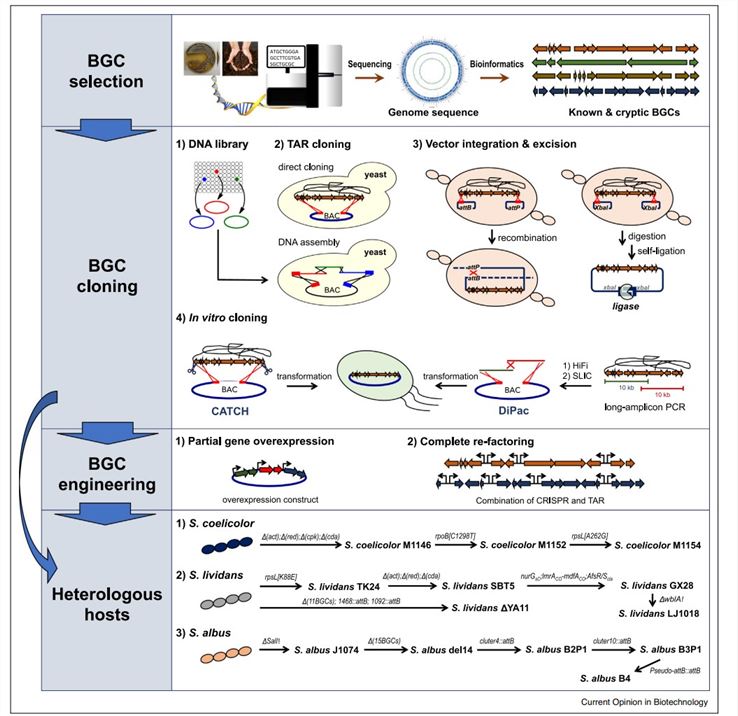Heterologous expression is a strategy to induce gene expression to produce a new natural product under specific conditions by linking a silenced gene to an efficient promoter and then introducing it into a heterologous host with simple genetic manipulation. Since promoter replacement strategies cannot be used in strains where genetic manipulation systems are difficult to establish, the heterologous expression has become another widely used strategy for targeted activation of silenced gene clusters. Lifeasible can use Saccharomyces cerevisiae and Aspergillus spp. as heterologous hosts to achieve expression of fungal silencing gene clusters and is working to develop more diverse heterologous hosts to accommodate fungal silencing gene expression of specific origin.
 Figure 1. Overview of the heterologous expression of natural product BGCs. (Tao W, et al., 2019)
Figure 1. Overview of the heterologous expression of natural product BGCs. (Tao W, et al., 2019)
Heterologous expression of gene clusters means cloning the entire silent biosynthetic gene cluster into a plasmid, expressing it using a heterologous host, and then finalizing the isolation, purification, and structural identification of the metabolites by analyzing the fermentation broth of the expression host containing the cloned plasmid as well as the control host.
Currently, the main heterologous hosts that we can provide for the expression of fungal silencing gene clusters are Saccharomyces cerevisiae and Aspergillus spp. fungi.
Lifeasible is dedicated to activating silent gene clusters by solving problems in heterologous expression processes such as the transfer of genetic pathways, functional gene expression, protein activity, substrate supply of enzymes, and effects on host cell metabolism. As your trusted partner, we can meet all your fungal phylogenetic analysis needs and provide you with efficient and high-quality services. If you want to know the details, please contact us.
References
Lifeasible has established a one-stop service platform for plants. In addition to obtaining customized solutions for plant genetic engineering, customers can also conduct follow-up analysis and research on plants through our analysis platform. The analytical services we provide include but are not limited to the following:
Get Latest Lifeasible News and Updates Directly to Your Inbox
Mechanism of Action of Plant Resistosome NRC4
May 20, 2025
Mechanisms Regulating Plant Chloroplast Biogenesis
April 15, 2025